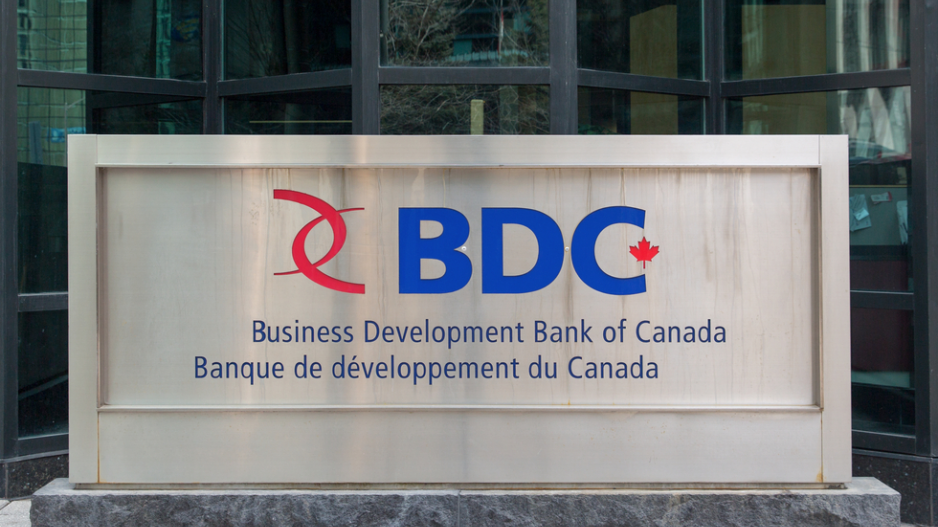While early-stage tech companies are busy sprinting out of the start line with millions in funding, the Business Development Bank of Canada (BDC) is giving an energy boost to mid-stage startups still pacing themselves to the finish.
The BDC announced February 17 it’s launching the $150-million IT Venture Fund II, which is aimed specifically at mid-stage companies.
Instead of handing out money to early-stage companies like Foodee or Eventbase, the fund would be cutting cheques for more mature firms like Cymax or BuildDirect.
“Unlike traditional industries and businesses, I think the nature of capitalization for tech companies tends to be front-end loaded,” said Bill Tam, president and CEO of the B.C. Technology Industry Association (BCTIA).
The B.C. government created a $100-million venture capital fund aimed at startups last fall.
Civil servants won’t be running the new fund. Instead, the province is seeking out a private fund manager to determine which startups will receive capital beginning in mid-2016.
But venture capital investment brought in by B.C. firms shrank from $339 million through the first three quarters of 2014 to $290 million in 2015, according to a November report from the Canadian Venture Capital and Private Equity Association (CVCA).
And across Canada venture capital investments have retreated $100 million, down from $1.3 billion in 2014 to $1.2 billion during the first three quarters of 2015.
Meanwhile, what money is being raised is going increasingly to startups as opposed to mid-to-large-size companies.
In 2013, early-stage investing accounted for 33% of investments in Canada before growing to 40% the next year. According to the latest 2015 figures, startup funding accounted for 52% — or $843 million — of venture capital investments made in Canada.
Fabio Banducci co-founder Vistara Capital Partners said the venture capital market has been quite active in recent years but the major funding gap for mid-size tech companies is challenging for entrepreneurs.
As the former CEO of Vancouver-based Peer 1 Hosting, Banducci recalled it wasn’t until his company was “well north of $100 million in revenue” that it could secure a more traditional banking relationship with a Canadian chartered bank to provide capital.
“That (funding) gap exists particularly in Canada and especially for technology companies,” he said.
“Commercial banks have not traditionally been particularly active in the technology segment because they just never really understood it that deeply and it’s very different than financing a manufacturing company.”
Banducci said the idea of intellectual property and intangible assets have been particular difficult for the banks to grasp, which is why Vistara announced in July it had raised $100 million to invest in mid-to-large-size tech companies.
He and business partner Randy Garg are targeting Canadian and western U.S. tech companies that produce $10-200 million in annual revenue with investments of $5-15 million to close the gap.
The first company added to its portfolio, Toronto’s GuestLogix, received $9 million.
Without this type of funding, mid-size tech firms are looking for growth capital either in the form of equity or debt, according to Banducci.
“A lot of companies are attracted to a debt solution because it doesn’t cause the same degree of dilution to shareholders as equity would,” he said.
But if that option isn’t there, Banducci said entrepreneurs pursue options like forming a partnership with other players in the industry to access capital or selling the business altogether.
“Across Canada you see many companies that — had they had the opportunity to access more capital — could have grown their valuation or that capital would have enabled the entrepreneurs and even their existing venture investors to postpone raising further equity.”
Banducci added more growth capital for mid-to-large size tech companies could mean more initial public offerings over time and creating more tech industry leaders headquartered in Canada.
But despite the CVCA’s report showing more venture capital is going to early stage tech firms, Tam said there’s still a significant funding gap for B.C. startups compared with U.S. startups.
As the report pointed out, venture capital funding is down nearly $50 million in 2015, even though a greater percentage is going to startups.
“The quest is to basically build something substantial that can ultimately be a disruptor in whatever market that they’re serving,” Tam said.
“And the raw input into that equation is really having sufficient capital to carry through as well as the people involved with it.”




